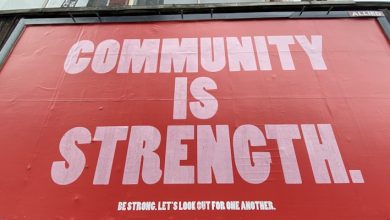How NFTs Are Changing the Music Industry

- Exploring the intersection of NFTs and music
- Unlocking new revenue streams for artists through NFTs
- Revolutionizing music ownership with non-fungible tokens
- The impact of NFTs on music distribution and royalties
- Challenges and opportunities for musicians in the NFT space
- Case studies of successful NFT launches in the music industry
Exploring the intersection of NFTs and music
In recent years, the intersection of NFTs and music has become a hot topic in the music industry. NFTs, or non-fungible tokens, have opened up new possibilities for musicians to engage with their fans and monetize their work in innovative ways.
One way that NFTs are changing the music industry is by allowing musicians to create unique digital assets that can be bought, sold, and traded on the blockchain. This has the potential to revolutionize the way that music is consumed and distributed, giving artists more control over their work and allowing them to connect directly with their fans.
Another exciting development is the use of NFTs to create limited edition music releases. By minting a limited number of NFTs for a new album or single, artists can create scarcity and exclusivity around their music, driving up demand and creating new revenue streams.
NFTs also have the potential to transform the way that music royalties are paid out. By using smart contracts to automate royalty payments, artists can ensure that they are fairly compensated for their work and that payments are made quickly and transparently.
Overall, the intersection of NFTs and music represents a new frontier for the music industry, offering artists new ways to engage with their fans, monetize their work, and take control of their careers. As the technology continues to evolve, it will be exciting to see how musicians continue to innovate and push the boundaries of what is possible in the digital age.
Unlocking new revenue streams for artists through NFTs
One of the most exciting opportunities that NFTs offer for artists is the ability to unlock new revenue streams. Through the sale of digital assets such as music, artwork, or collectibles as NFTs, artists can directly connect with their fans and monetize their work in a whole new way.
By minting their creations as NFTs, artists can generate income not only from the initial sale but also from any subsequent trades in the secondary market. This means that artists can continue to earn royalties whenever their NFTs are bought and sold, providing a more sustainable source of income compared to traditional streaming or sales models.
Additionally, NFTs allow artists to offer unique and exclusive content to their fans, such as limited edition releases or special access to events. This can help to cultivate a stronger and more dedicated fan base, as supporters are incentivized to purchase NFTs in order to access these exclusive perks.
Overall, NFTs have the potential to revolutionize the way artists engage with their fans and monetize their creativity. By leveraging blockchain technology and the principles of scarcity and ownership, artists can tap into a whole new world of possibilities for generating income and building a sustainable career in the music industry.
Revolutionizing music ownership with non-fungible tokens
NFTs are revolutionizing the way music ownership works in the industry. These unique tokens are changing the game by providing a new way for artists to connect with their fans and monetize their work. By utilizing blockchain technology, musicians can now create digital assets that represent ownership of their music, allowing for a more direct and transparent relationship with their audience.
One of the key benefits of NFTs in the music industry is the ability for artists to retain control over their work while still allowing fans to support them in a meaningful way. This shift towards a more decentralized and artist-friendly model has the potential to reshape the entire music ecosystem, empowering musicians to take ownership of their careers like never before.
With NFTs, artists can create limited edition pieces of music that are tokenized on the blockchain, making them scarce and valuable to collectors. This exclusivity adds a new layer of excitement for fans, who can now own a piece of their favorite artist’s work in a way that was previously impossible. The rise of NFTs in the music industry is opening up a world of possibilities for both artists and fans alike, creating new opportunities for collaboration and creativity.
The impact of NFTs on music distribution and royalties
One of the most significant impacts of Non-Fungible Tokens (NFTs) on the music industry is their effect on music distribution and royalties. NFTs have revolutionized the way musicians can sell and distribute their music directly to fans, cutting out the middlemen and allowing artists to retain a larger percentage of their earnings.
Through NFTs, musicians can tokenize their music, creating unique digital assets that can be bought, sold, and traded on various blockchain platforms. This direct-to-fan model not only empowers artists to connect with their audience on a more personal level but also enables them to receive royalties in real-time whenever their music is sold or streamed.
By leveraging NFT technology, musicians can also create exclusive limited edition releases, special access passes to concerts, and even unique experiences for their fans. This not only adds value to the music itself but also provides new revenue streams for artists beyond traditional music sales and streaming platforms.
Furthermore, NFTs provide a transparent and immutable ledger of ownership, ensuring that artists receive fair compensation for their work and that royalties are distributed accurately. This increased transparency and efficiency in royalty payments have the potential to revolutionize the music industry, making it more equitable and empowering for artists.
Overall, NFTs are changing the music industry by giving artists more control over their music distribution and royalties, enabling them to connect directly with their fans, and creating new revenue streams beyond traditional music sales and streaming platforms. As the technology continues to evolve, it will be fascinating to see how NFTs shape the future of the music industry and empower artists in unprecedented ways.
Challenges and opportunities for musicians in the NFT space
As musicians navigate the world of NFTs, they face a unique set of challenges and opportunities. One of the main challenges is the technical complexity of minting and selling NFTs. Musicians may struggle to understand the intricacies of blockchain technology and smart contracts. This can pose a barrier to entry for those who are not tech-savvy. However, this challenge also presents an opportunity for musicians to learn new skills and expand their knowledge in this rapidly evolving digital landscape.
Another challenge for musicians in the NFT space is the issue of copyright and intellectual property rights. With the immutable nature of blockchain, there is a risk of unauthorized distribution and infringement of music copyrights. Musicians must be vigilant in protecting their work and ensuring that they are fairly compensated for their creations. On the flip side, NFTs offer a unique opportunity for musicians to establish direct relationships with their fans and bypass traditional intermediaries in the music industry.
Additionally, the volatile nature of the cryptocurrency market poses a risk for musicians venturing into the world of NFTs. The value of digital assets can fluctuate dramatically, affecting the perceived worth of NFTs tied to music. Musicians must carefully consider the financial implications of entering the NFT space and be prepared to weather market fluctuations.
Case studies of successful NFT launches in the music industry
Several musicians have successfully launched NFTs in the music industry, showcasing the potential of this innovative technology. One notable example is Kings of Leon, who released their album as an NFT, offering exclusive perks such as front-row concert tickets and limited-edition vinyl records. This unique approach generated significant buzz and revenue for the band.
Another successful NFT launch in the music industry was by electronic musician 3LAU, who sold an album exclusively as NFTs, raising over $11 million in sales. This groundbreaking move demonstrated the power of NFTs in connecting artists directly with their fans and monetizing their work in new ways.
Furthermore, Grammy-winning artist Grimes made headlines with her NFT collection, which included visual artwork, music, and exclusive experiences. By leveraging NFTs, Grimes was able to tap into the growing market for digital collectibles and engage her fan base in a novel and exciting manner.



